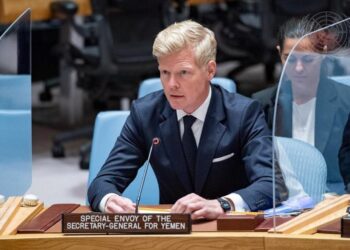Reservists’ decision to join tens of thousands of people on the streets has alarmed and alarmed military and government leaders.
Israelis have been persuading themselves for years that the army is the true owner of the nation. That was sometimes uttered in jest. As a perceived mirror of reality, sometimes.
Yet since demonstrations broke out against the government’s divisive judicial reform proposal more than ten weeks ago, many Israelis’ views on army institutions have significantly shifted.
Army troops are now frequently denigrated by supporters of Prime Minister Benjamin Netanyahu’s administration and politicians from his ruling coalition, despite earlier being regarded as beloved heroes.
It’s a first, much like how troops have never participated in a large-scale demonstration.
It all started two weeks ago when Squadron 69, an elite Israeli air force unit, had 37 out of 40 reservists announce they would not be attending training because they opposed the government’s plan to overhaul the judiciary.
The Hammers squadron, which has recently conducted hundreds of attacks against Iranian targets in Syria, including the 2007 raid on Syria’s nuclear reactor, has been essential to Israel’s security.
Israeli society has historically regarded the army and its various divisions with high regard, considering them to be among the most dependable state institutions in the nation. Because of this, the government places a higher value on the lives of soldiers than those of the civilians they are supposed to protect.
As a result, Squadron 69’s decision to join tens of thousands of protesters on the streets demonstrates the growing outrage against the planned judicial overhaul, which critics fear could undermine checks and balances and place the nation under authoritarian rule.
On Sunday, they were trailed by 180 reservist pilots, guides and other flying corps team declaring they wouldn’t appear for their weekly training. This first-of-its-kind decision takes effect right away, in contrast to their predecessors, whose similar statement made no mention of the future at all.
They spoke straight from the heart. Many of them have made it clear that they intend to protest instead of attending training. In a letter to his commander, one of the pilots wrote: Regarding the imminent change in the regime, the upcoming weeks are crucial. Taking part in any attempt to halt this process is, in my opinion, where my contribution to the state and its security is most needed right now.
What started with 37 pilots and changed the protest’s direction and mood is now an avalanche of hundreds. Additionally, reservists from other units, such as the Israeli intelligence corps’ Unit 8200, have threatened not to report for duty.
In the mean time, reservists and veterans from the Golani battle infantry unit have reported their refusal to act as long as the “fascism regulation” proceeds.
Reservists from other elite formations, such as the Flotilla 13 naval commandos and the Shaldag special forces unit of the air force, have also stated that they will either stop volunteering extra time or refuse call-up orders.
Defense Minister Yoav Galant, a member of Netanyahu’s Likud party, referred to the dissidents as “a real threat to Israel’s security” just a few days ago. However, as their numbers increase, his tone has changed, and on Monday, he made the threat to resign if no compromise is made. According to reports, he warned the prime minister that the military might split up.







